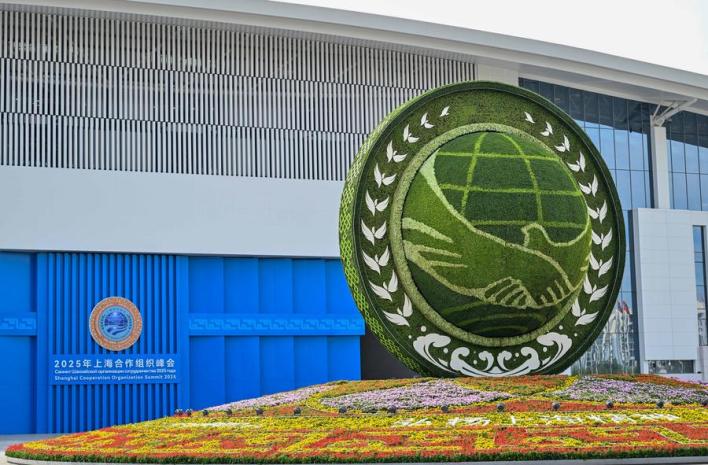China’s Global Governance Initiative: A blueprint towards a more just world order

Wissal Klifi: Department of Strategic Research, Studies and International Relations

As the United Nations marks its 80th anniversary in 2025, the international community is reminded of the institution’s original mission: to guarantee peace, uphold international law, and allow all nations a voice in shaping the global order. Yet, the turbulence of the current era, wars, sanctions, inequality, climate crises, and the disruptive rise of new technologies, has exposed deep flaws in global governance. At the heart of these challenges lies a system that many argue has long been dominated by a handful of powers, leaving most of the world marginalized.
It was against this that Chinese President Xi Jinping unveiled the Global Governance Initiative (GGI) on September 1, 2025, during the “Shanghai Cooperation Plus” summit in Tianjin. The initiative seeks to strengthen the role of the UN and to offer a fresh vision of a multipolar world order, one that gives a greater voice to the Global South and replaces unilateral dominance with shared responsibility.
The GGI builds upon three previous Chinese initiatives: the Global Development Initiative, the Global Security Initiative, and the Global Civilization Initiative. Each of these initiatives addressed specific aspects of world affairs, from economic development to dialogue among nations. The GGI, however, is broader: it is about the architecture of global governance itself. At its core five principles echo both China’s official position and the developing nations.
The first principle is sovereign equality, which is a reminder that all states, regardless of their economic status, are equal in rights in international decision making. For decades, many countries of the Global South have reported being marginalized, with their sovereignty eroded by external interference and economic dependency. The GGI asserts that no state should impose its system, values, or will on another.
The second principle is a firm commitment to the rule of international law, particularly the UN Charter. President Xi and Chinese officials argue that the law has too often been manipulated by powerful states that apply it selectively. Wars of intervention, unilateral sanctions, and the use of international institutions as tools of pressure have undermined trust in global norms. The GGI calls for restoring justice by making sure that laws are applied equally, protecting the weak as much as the strong.
The third pillar being genuine multilateralism. In this context, Beijing rejects exclusive decision making groups such as the G7, where a few nations make decisions affecting billions of people. Instead, China advocates for a governance model based on broad consultation and inclusiveness, granting emerging economies and developing countries a significant role in shaping the future of international policies.
The fourth principle is a people-centered approach. The GGI, unlike the cold language of geopolitics, emphasizes human well being. It argues that governance should produce measurable improvements in people’s lives, including narrowing the digital division and addressing climate change to ensuring access to modern technology and infrastructure.
Finally, the initiative emphasizes real results. Rhetorical commitments are considered insufficient to address divisions or build trust. China insists on concrete reforms, including restructuring global financial institutions, ensuring fair access to artificial intelligence, and strengthening the UN’s ability to act on pressing global issues.
Western critics dismiss the proposal as geopolitical maneuvering, but for much of the Global South, there is some resonance. Many countries are tired of what some have defined as an “imperial mafia” of powerful countries that monopolizes resources, applies double standards, and fosters instability. However, China presents itself as a responsible actor offering both, critiques and practical alternatives.
The geopolitical symbolism of launching the initiative at the Shanghai Cooperation summit was not missed. By choosing this platform, Beijing highlighted the growing importance of Eurasian cooperation, it also sent a clear message stating that the future of governance for the world may be playing out in venues located outside of a Western capital. For Arab analysts, the GGI holds promise. It can be seen as an opportunity to escape decades of marginalization and engage in a more balanced order where sovereignty and development are respected.
China’s initiatives, in addition to aspirations for justice and equality, have practical mechanisms: the Belt and Road Initiative for infrastructure, and peacekeeping contributions, and calls for reform of the UN. This blend of moral appeal and practical mechanisms makes the GGI a credible proposition, especially for countries that want to break away from the Western financial system dependency.
Still, challenges remain. The success of the GGI will depend on whether other major powers obstruct or support it, and whether developing countries themselves can unite behind a common goal rather than giving in to external pressures.
Yet, the significance of the GGI cannot be dismissed. It represents more than a diplomatic statement, it is a declaration of intent to redefine legitimacy in international affairs. In a world where unipolar dominance is increasingly contested, China’s proposal offers a different path: one grounded in sovereignty, fairness, and shared progress.





